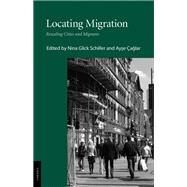Locating Migration
, by Schiller, Nina Glick- ISBN: 9780801449529 | 0801449529
- Cover: Hardcover
- Copyright: 8/19/2010
In this book Nina Glick Schiller and Ayse «aglar, along with a stellar group of contributing authors, examine the relationship between migrants and cities in a time of massive urban restructuring. They find that locality matters in migration research and migrants matter in the reconfiguration of contemporary cities. This book provides a new approach to the study of migrant settlement and transnational connection in which cities rather than nation-states, ethnic groups, or transnational communities serve as the starting point for comparative analysis. Neither negating nor privileging the nation-state, Locating Migration provides ethnographic insights into the various ways in which migrants and specific cities together mutually constitute and contest the local, national, and global. Cities are approached not as containers but as fluid and historically differentiated analytical entry points. Chapters explore migrants' relationship to the neoliberal rebranding, redevelopment, and rescaling of down-and-out, aspiring, and global cities in the United States and Europe. The various chapters document the pathways of incorporation and transnational connection of migrants from Asia, Africa, Latin America, and Europe. Migrants are approached not as a homogenous category but in terms of their range of experiences of class, racialization, gender, history, politics, and religion. Setting aside the migrant/native divide that haunts most migration studies, the authors of this book view migrants as residents of cities and actors within them, understanding that to be a resident of a city is to live within, contribute to, and contest globe-spanning processes that shape urban economy, politics, and culture.






